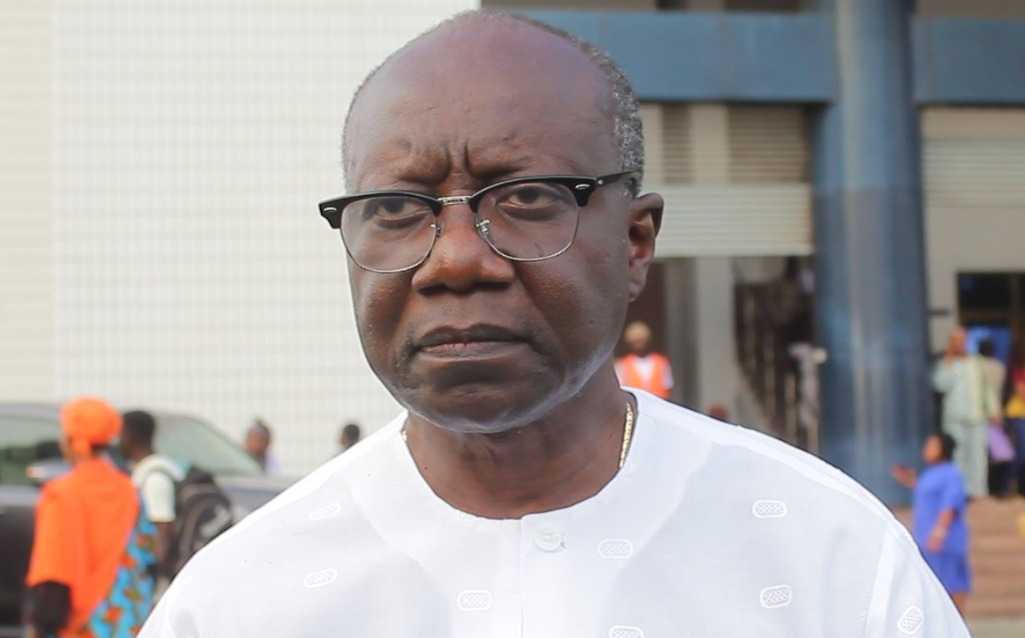
By Ebenezer Adjei NJOKU
Professor Godfred Alufar Bokpin, Professor of Finance at the University of Ghana, has issued a caution regarding the sustainability of fiscal reforms, stating that the 2026 National Budget fails to articulate a clear strategy for maintaining discipline once the country exits the International Monetary Fund (IMF) programme in the middle of next year.
Speaking at the annual Deloitte Economic Dialogue, Prof. Bokpin identified the absence of a defined post-programme path as the primary risk to the budget’s objectives, arguing that it leaves the economy vulnerable to the cyclical fiscal indiscipline that has historically followed periods of IMF-supported stability.
“We are firmly under direct supervision of the IMF that will end somewhere in the middle of next year – and that is where the risk is. I did not see a clear exit plan behind the IMF-supported programme,” he said.
“We know how Ghana behaves when we are under the IMF programme and when we exit. So one would have expected the budget to go beyond just the economic policy and give us an exit strategy. Is there going to be a technical extension of about three months, as we have seen with Zambia and the like?” Prof. Bokpin added, referencing the nation’s history of reverting to excessive spending and money-printing once external supervision is lifted.
He noted that the three-year outlook provided by the budget did not adequately detail the structural mechanisms government intends deploying to lock in fiscal responsibility, suggesting the administration must find a way to mitigate this critical risk – potentially through a technical extension of oversight or robust domestic anchors.
Beyond the future fiscal threat, the professor delivered a stringent critique of the current administration’s expenditure execution; arguing that resources are being allocated sub-optimally, even under the pressure of fiscal consolidation.
Prof. Bokpin highlighted that government revenue shortfalls often lead to immediate cuts in budgeted spending to avoid recourse to high-cost borrowing.
While this approach signals prudence, it creates significant delays in vital infrastructure projects and leads to poor resource utilisation.
He cited data from the 2025 budget, which allocated approximately GH¢33billion to Capital Expenditure (CAPEX) but only achieved an execution rate of roughly 55 percent.
This disparity, he argued, indicates that the state is “not spending and allocating resources optimally” – thereby sacrificing growth that should accompany the current period of macroeconomic stabilisation.
He noted that stability, which he likened to “fresh air”, must be translated into demonstrable growth and job creation – a task hindered by inefficient CAPEX deployment.
The finance expert further criticised escalating institutional costs of implementing government policies, which he attributed to structural duplication across the public sector.
He contended that the practice of creating new authorities or establishing dedicated programme structures to implement policies is excessively costly and redundant, as existing Ministerial Departments and Agencies (MDAs) are already legally mandated and staffed for these functions.
This critique was made with a reference to the GH¢150million allocated in the budget for the 24-Hour Economy initiative.
Prof. Bokpin maintained that every component of this new economic policy could be “situated within a ministry, a department or an agency”, suggesting that new, expensive structures are unnecessarily draining public resources.
Prof. Bokpin provided a proposal for a fundamental reorientation of the nation’s governance model.
He argued that the economy’s future success hinges on embracing a “low-cost, high-achievement democracy”.
This model requires policymakers to move away from cost-driven approaches toward achieving greater outcomes by leveraging and optimising the existing state machinery.
In his view, the key challenge for government now is not only navigating the macroeconomic crisis, which he attributes to past “debt-induced microeconomic instability”, but to enact structural reforms that ensure fiscal resources are spent effectively by an efficient, non-redundant state apparatus – guaranteeing long-term, self-sustained growth independent of external bailouts.
The onus, he suggested, is on government to act decisively before the historical cycle of indiscipline repeats.
The post Prof. Bokpin warns 2026 budget lacks clear IMF exit plan appeared first on The Business & Financial Times.
Read Full Story

















Facebook
Twitter
Pinterest
Instagram
Google+
YouTube
LinkedIn
RSS